God Is Not a Christian
Made for Goodness
Tutu: Authorized
An African Prayer Book
God Has a Dream
No Future Without Forgiveness
The Rainbow People of God
Crying in the Wilderness
Hope and Suffering

Certain names have been changed where indicated in the text in order to protect the privacy of those individuals.
THE BOOK OF FORGIVING: The Fourfold Path for Healing Ourselves and Our World. Copyright 2014 by Desmond M. Tutu and Mpho A. Tutu. All rights reserved under International and Pan-American Copyright Conventions. By payment of the required fees, you have been granted the nonexclusive, nontransferable right to access and read the text of this e-book on-screen. No part of this text may be reproduced, transmitted, downloaded, decompiled, reverse engineered, or stored in or introduced into any information storage and retrieval system, in any form or by any means, whether electronic or mechanical, now known or hereinafter invented, without the express written permission of HarperCollins e-books.
HarperCollins website: http://www.harpercollins.com
HarperCollins,  , and HarperOne are trademarks of HarperCollins Publishers.
, and HarperOne are trademarks of HarperCollins Publishers.
FIRST EDITION
Library of Congress Cataloging-in-Publication Data
Tutu, Desmond.
The book of forgiving : the fourfold path for healing ourselves and our world / Desmond M. Tutu and Mpho A. Tutu ; edited by Douglas C. Abrams. FIRST EDITION.
pages cm
Includes bibliographical references.
ISBN 9780062203564
EPub Edition January 2014 ISBN 9780062203588
1. Forgiveness. I. Abrams, Douglas Carlton, editor of compilation. II. Title.
BJ1476.T88 2014
179.9dc23 2013033890
14 15 16 17 18 RRD(H) 10 9 8 7 6 5 4 3 2 1
To Angela
We miss you
Contents
HE HAD MANY WOUNDS. She spoke with the precision of a coroner. In the upper abdomen were five wounds. These wounds indicated that different weapons were used to stab him, or a group of people stabbed him. Mrs. Mhlawuli continued her harrowing testimony to the Truth and Reconciliation Commission. She spoke about the disappearance and murder of her husband, Sicelo. In the lower part, he also had wounds. In total, there were forty-three. They poured acid on his face. They chopped off his right hand just below the wrist. I dont know what they did with that hand. A wave of horror and nausea rose in me.
Now it was nineteen-year-old Babalwas turn to speak. She was eight when her father died. Her brother was only three. She described the grief, police harassment, and hardship in the years since her fathers death. And then she said, I would love to know who killed my father. So would my brother. Her next words stunned me and left me breathless. We want to forgive them. We want to forgive, but we dont know who to forgive.
As chairman of the Truth and Reconciliation Commission, I have often been asked how the people of South Africa were able to forgive the atrocities and injustices they suffered under apartheid. Our journey in South Africa was quite long and treacherous. Today it is hard to believe that, up until our first democratic election in 1994, ours was a country that institutionalized racism, inequality, and oppression. In apartheid South Africa only white people could vote, earn a high-quality education, and expect advancement or opportunity. There were decades of protest and violence. Much blood was shed during our long march to freedom. When, at last, our leaders were released from prison, it was feared that our transition to democracy would become a bloodbath of revenge and retaliation. Miraculously we chose another future. We chose forgiveness. At the time, we knew that telling the truth and healing our history was the only way to save our country from certain destruction. We did not know where this choice would lead us. The process we embarked on through the TRC was, as all real growth proves to be, astoundingly painful and profoundly beautiful.
I have also been asked what I learned about forgiveness from that experience and from the many places I have visited during my life where there has been conflict and suffering, from Northern Ireland to Rwanda. This book is a response to this question. It is also an answer to the unspoken question that lies behind: How do we forgive? This book is written for those who need forgiveness, whether they want to forgive or to be forgiven.
There are days when I wish I could erase from my mind all the horrors I have witnessed. It seems there is no end to the creative ways we humans can find to hurt each other, and no end to the reasons we feel justified in doing so. There is also no end to the human capacity for healing. In each of us, there is an innate ability to create joy out of suffering, to find hope in the most hopeless of situations, and to heal any relationship in need of healing.
I would like to share with you two simple truths: there is nothing that cannot be forgiven, and there is no one undeserving of forgiveness. When you can see and understand that we are all bound to one anotherwhether by birth, by circumstance, or simply by our shared humanitythen you will know this to be true. I have often said that in South Africa there would have been no future without forgiveness. Our rage and our quest for revenge would have been our destruction. This is as true for us individually as it is for us globally.
There have been times when each and every one of us has needed to forgive. There have also been times when each and every one of us has needed to be forgiven. And there will be many times again. In our own ways, we are all broken. Out of that brokenness, we hurt others. Forgiveness is the journey we take toward healing the broken parts. It is how we become whole again.
Whether it is the tormentor who tortured me brutally, the spouse who betrayed me, the boss who passed me over for a promotion, or the driver who cut me off during my morning commute, I face the same choice: to forgive or to seek revenge. We face this choice of whether or not to forgive as individuals, as families, as communities, and as a deeply connected world.
The quality of human life on our planet is nothing more than the sum total of our daily interactions with one another. Each time we help, and each time we harm, we have a dramatic impact on our world. Because we are human, some of our interactions will go wrong, and then we will hurt or be hurt, or both. It is the nature of being human, and it is unavoidable. Forgiveness is the way we set those interactions right. It is the way we mend tears in the social fabric. It is the way we stop our human community from unraveling.
There are countless studies that enumerate the social, spiritual, psychological, and even physiological benefits of forgiveness. The actual process of forgiveness, however, has often been left a mystery. Yes, it is good and helpful to let go of resentment, but how do we let go of resentment when we have been harmed? Of course it is better not to exact retribution, but how can we forgo retribution when what has been taken from us cannot be restored? And is it even possible to forgive and still pursue justice? What steps must we follow to achieve forgiveness? How do we heal all the holes in our hearts that come with being the fragile creatures we are?

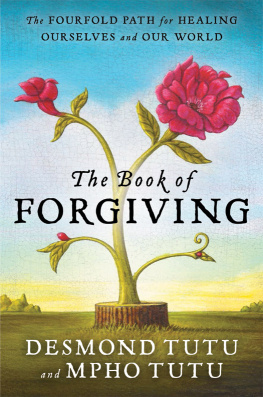

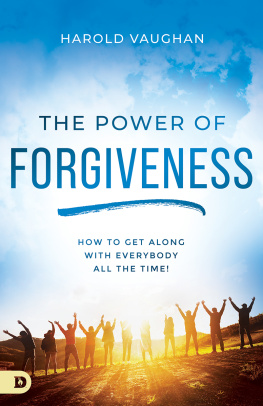
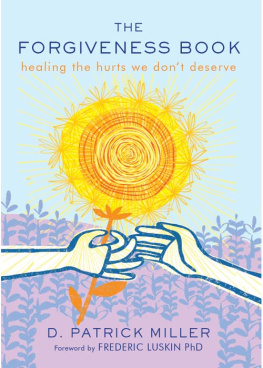
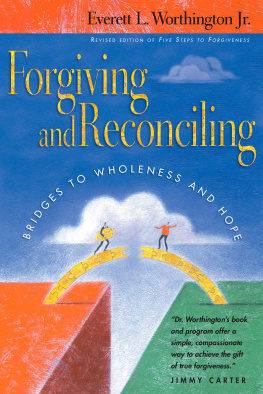
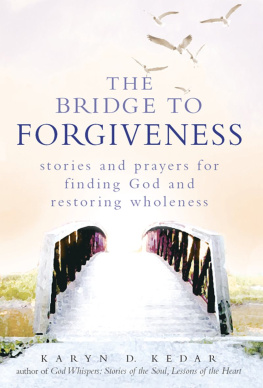
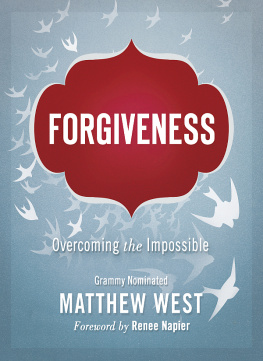
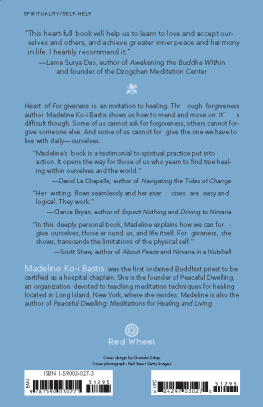
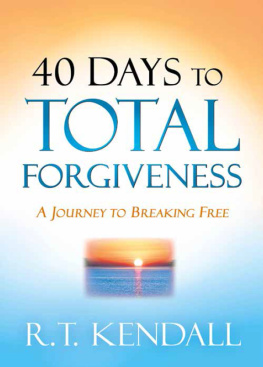
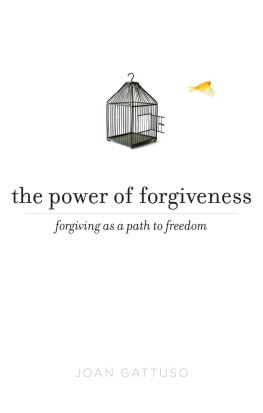
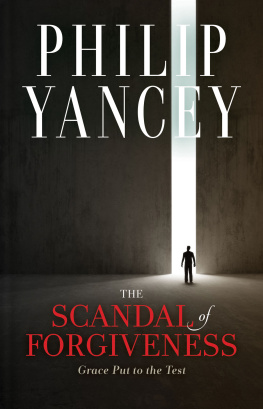
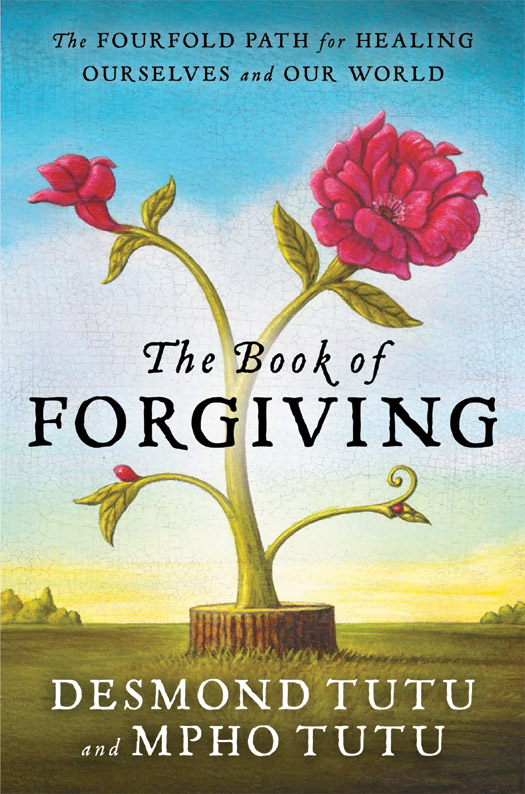

 , and HarperOne are trademarks of HarperCollins Publishers.
, and HarperOne are trademarks of HarperCollins Publishers.